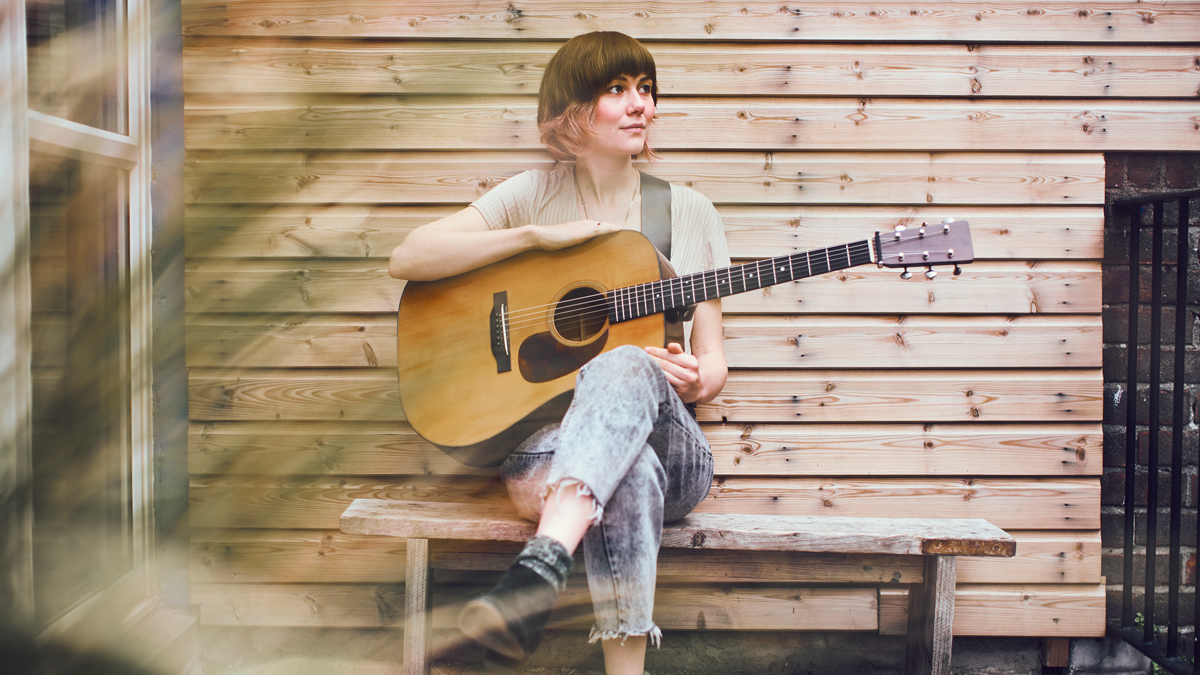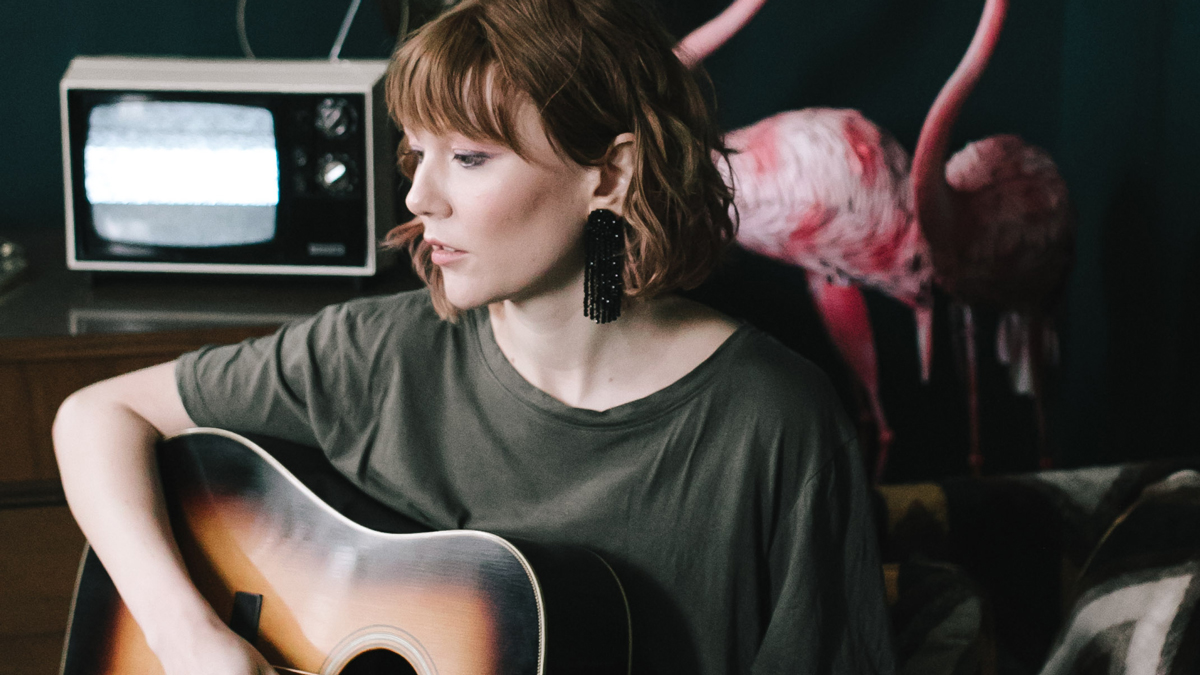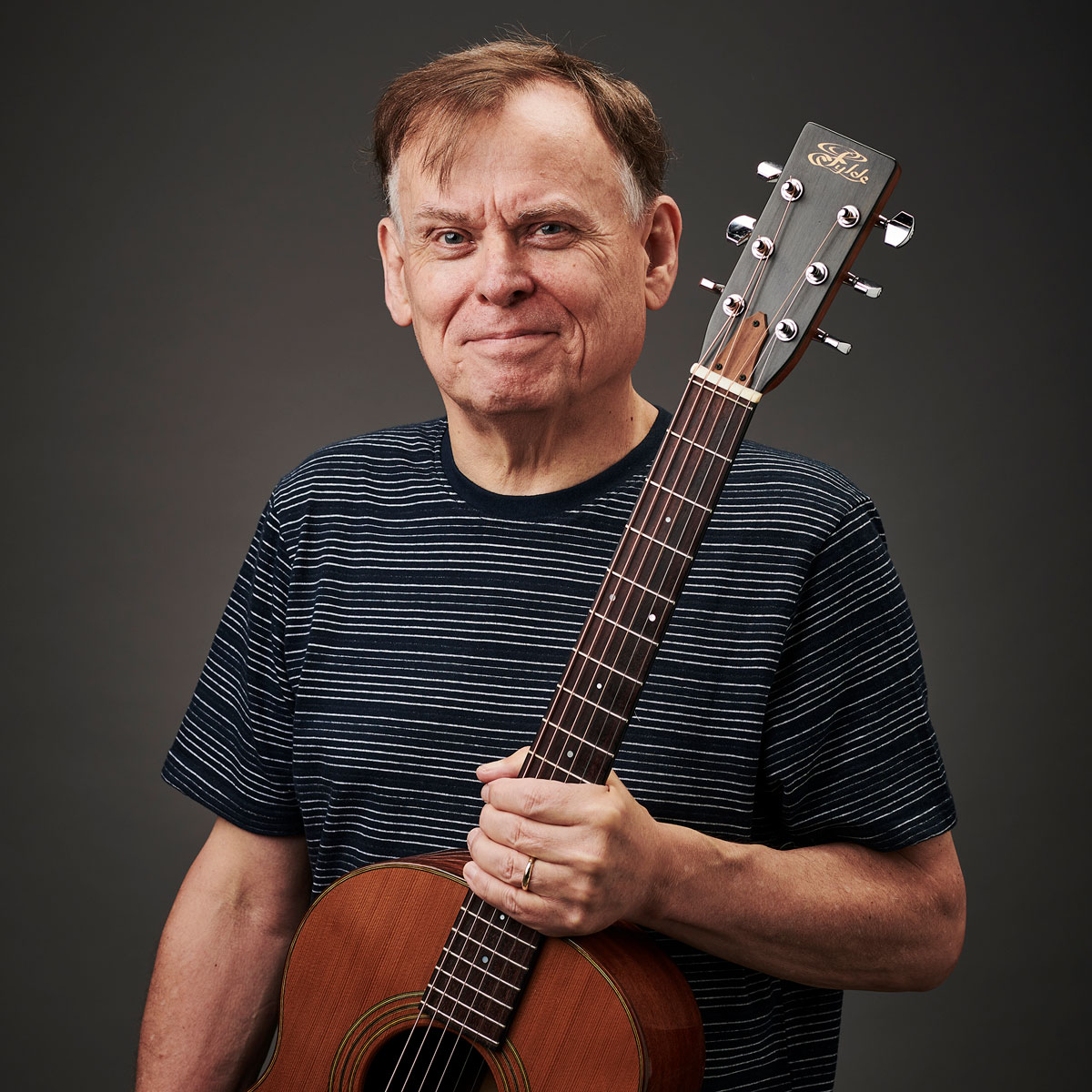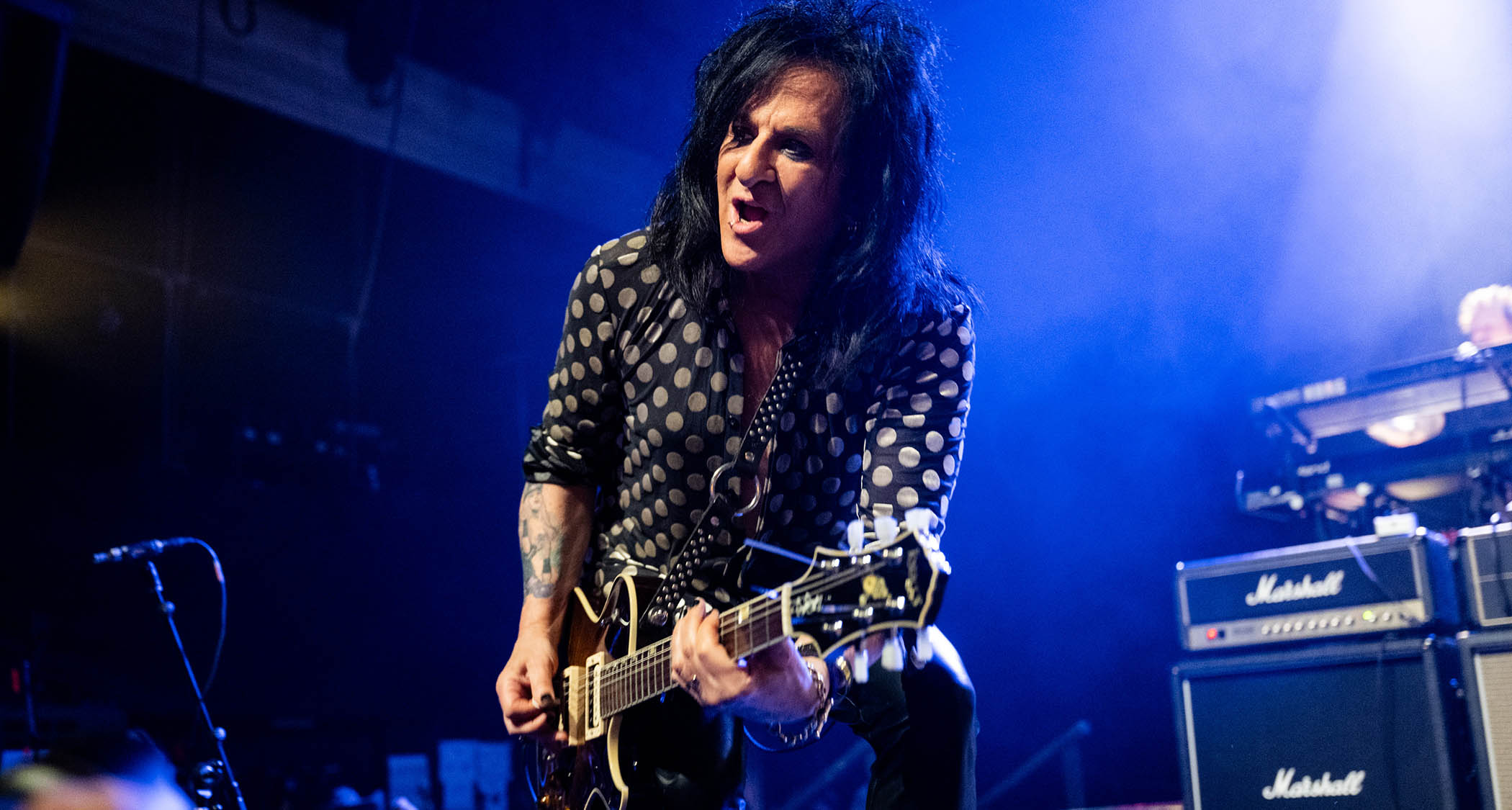Molly Tuttle: “I don’t want to play bluegrass to a click. It’s such an organic music – I wanted to get the feeling of people just jamming together”
New album Crooked Tree finds the flatpicker extraordinaire exploring her influences with a stunning set of original tunes

Molly Tuttle's Crooked Tree sees the Nashville-based acoustic guitar phenom apply her storytelling gifts to an album of all-original bluegrass standards. Recorded live, with guests appearances from the likes of Billy Strings, it also provides a showcase for her incredible chops.
Here, she talks through the making of the record and the creative choices behind the tones and the tunes.
Your previous album, But I’d Rather Be With You, was a covers album, but new album Crooked Tree feels more like you’ve gone back to your roots.
“I’d say so, yeah. The last album was such a cool experience – to record it in my house and work with [producer] Tony Berg. I think that record, to me, was pointing in a direction that I’ve been wanting to go and that I still want to go.
“But what came really naturally to me after that was when I started sitting down and writing these bluegrass songs, and I realised another dream of mine, which I haven’t actually ever really chased after, was recording a bluegrass album of original songs. So when I made this album, it felt like I was being my complete artistic self.”
Where did your love for bluegrass begin?
“I guess where it began was with my grandfather, who was a farmer in Illinois, and he played banjo. He fell in love with bluegrass music and early country music like Hank Williams, and he heard Flatt and Scruggs on the Grand Ole Opry.
All the latest guitar news, interviews, lessons, reviews, deals and more, direct to your inbox!
“He played banjo, and my dad grew up playing with him and kind of had a family band thing on the farm. Then my dad moved out to California and started teaching bluegrass music in the Bay Area. So when I was a kid, all I listened to up to a certain age was bluegrass.
“I was probably 10 years old before I really started getting my own CD collection going. I wanted to play music really early on, and guitar was the thing that stuck with me. But I always had bluegrass jams to go to with my dad, and he had other students my age that I could play with, and we’d go to festivals together. Those early memories inspired this new album.”

And you recorded a lot of the album live?
“Yeah, we did. Most of the vocals are live, everyone was taking live solos. It wasn’t a strict rule, but I don’t want to play bluegrass to a click. I don’t want to overdub my vocals when I’m not playing guitar, it just doesn’t feel natural. It’s such an organic music and I wanted to get the feeling of people just jamming together.
“Obviously, it’s different when you’re in a studio – it’s harder to have the same relaxed feeling as when you’re just sitting out in lawn chairs at a festival. But I think my favourite bluegrass is the kind that’s really just played as live as possible.”
Is Crooked Tree the first album you’ve produced yourself?
“Yeah, it was really a cool experience getting to co-produce it with Jerry [Douglas]. He was so respectful and really leaned on me for a lot of the production ideas. I felt that, for the first time, I was really steering the ship, but I knew when to call on him for his expertise. It was a great experience.”
How did you go about choosing the people who played with you on the album?
“I had a dream list of people for each instrument and almost everyone was available [including Sierra Hull, Billy Strings and Dan Tyminski]. One reason why I wanted to record it when I did – in the summer, in July – is because people were still not going out on the road. So I felt like we needed to take advantage of that and get them into the studio. Then Jerry had some ideas, too. It was a combination of me starting off with who I wanted and then him suggesting a couple of people as well.”
When did you start writing for the album?
“I started writing about a year ago. Over the holidays of 2021, I remember beginning to write what became San Francisco Blues. That was probably the first song for the album, except Over The Line, which I wrote a couple of years ago. I’ve actually performed that one live but had never recorded it. That was the only one from my older songs that seemed to fit with this new batch. The rest I wrote last spring and last winter.”
Which instruments did you take into the studio with you?
“Oh, I just took one guitar. I took my Pre-War Guitars guitar and it’s like this Brazilian rosewood one they made for me a couple of years ago, and that’s been my go-to tour instrument, so I was the most used to playing it. I wanted to be really comfortable with the feel of it, and I love how it sounds.”
I grew up listening to The Dillards, and they have a song about a moonshiner named Dooley. We thought it would be fun to kind of update Dooley and make him a weed farmer this time around
A lot of the songs on the new album have a very strong narrative. Dooley’s Farm, for instance, can you tell us about that?
“Yeah, I grew up listening to The Dillards, and they have a song about a moonshiner named Dooley. I wrote that one with [Old Crow Medicine Show’s] Ketch Secor. We thought it would be fun to kind of update Dooley and make him a weed farmer this time around, because in the South it’s mostly still illegal to grow weed.
“So that’s our current-day outlaw. We talked about that idea a bunch and tried to write it a couple of times, but nothing really materialised. And then, the last time we tried it flowed really naturally. But it had been an idea that we were kicking around for a while.”
Are there any other songs on the album that you’re particularly pleased with?
“I think Grass Valley is the song that’s the most autobiographical. I was saying how I started off playing music with my dad and going to bluegrass festivals and jams. So I started thinking, well, the first festival that I went to was in Grass Valley, California, and I really liked it. It’s called the Father’s Day Bluegrass Festival, but a lot of people just call it ‘Grass Valley’.
“I went there when I was 10 years old with my dad, and I since wrote the song based on personal experience because I have gone back to that festival as an adult. And then, when we were recording it, I was like, ‘We should send this to my dad to sing on.’ So it was really special to get his vocal on the harmony part. You can hear him singing in the chorus with me. I think he was really excited.
“Unfortunately, he wasn’t available to fly out to Nashville to do his part in person, but he has a studio in California where we recorded a lot when I was a kid. It’s just really simple – he has a couple of microphones and a little interface – so he did this part out there in the studio where we used to record our stuff.”
Are you looking forward to taking this material out on the road?
“Yeah, I’ve put together a bluegrass band that’s kind of like my touring band. It’s different from the people who played on the record. When I was asking people to come into the studio, I was just thinking who were the heroes that I grew up listening to and I asked a bunch of people to play on the record.
“But a lot of them are in full-time bands. So it was like working backwards from there. I’m like, ‘Who might be fun to be in my band?’ and the band I ended up putting together for touring is so exciting and so fun. It’s like a dream bluegrass band.
“We just finished our first tour last week and we were trying out a bunch of the new material and giving people a preview of the album. And then, once it comes out, we have a ton of festivals and a lot more touring to come.”
- Crooked Tree is out now on Nonesuch.
With over 30 years’ experience writing for guitar magazines, including at one time occupying the role of editor for Guitarist and Guitar Techniques, David is also the best-selling author of a number of guitar books for Sanctuary Publishing, Music Sales, Mel Bay and Hal Leonard. As a player he has performed with blues sax legend Dick Heckstall-Smith, played rock ’n’ roll in Marty Wilde’s band, duetted with Martin Taylor and taken part in charity gigs backing Gary Moore, Bernie Marsden and Robbie McIntosh, among others. An avid composer of acoustic guitar instrumentals, he has released two acclaimed albums, Nocturnal and Arboretum.

